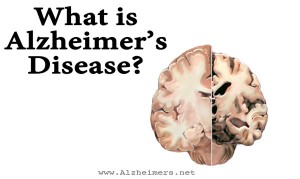Would you ever think that the McDonald’s trip you took earlier today could lead to the development of Alzheimer’s in your future? Well, there are signs that it actually could. I had never thought about over nutrition as a cause of this debilitating disease that impacts the lives of so many, but there is more to do with it than just genetics.
Activation of the PI3-K/Akt pathway:
This pathway in our body, is normally activated by insulin. When the pathway is activated, its job is to promote normal aging and transcription in the body. However, it is seen in Alzheimer’s disease (AD) that this pathway is over activated. Normally, activation of the pathway causes the activation of IRS which then activates PI3-K. PI3-K is a kinase that is responsible for phosphorylating PIP2. The new PIP3 is then able to activate a protein AKT which then can phosphorylate other molecules like GSK3B, FOXO and MTOR. In regular function, GSK3B is inhibited which allows the proliferation of the B-catenin pathway an changes transcription factors in the cell. FOXO is also inhibited and is involved in a normal stress response. MTOR is activated at the end of the pathway because it causes the inhibition of the pathway as a negative feedback. When over nutrition is involved, the body is unable to handle the breaking down the sheer amount of proteins involved and creates faulty proteins called ABeta. These faulty proteins can also activate the PI3-K pathway. This overall leads to insulin resistance, because as the pathway is over activated it leads to an abundance of MTOR which shuts down the pathway all together. Therefore, more insulin is needed in order to cause the same response in the body. Eventually, the body continues to make faulty proteins and continues with insulin resistance until the body elicits neuron/cell apoptosis which leads to a decrease in transmission of signals in the brain.
Treatment of Alzheimer’s Disease:
Although there a drug remedies involved with AD, there is no definite cure for AD, the medications can only slow the onset of the disease. One form of these medications is an acetylcholinesterase inhibitor which basically allows our excitatory neurotransmitter acetylcholine persist in the brain so that signals are more likely to occur. Another medication option is known as memantine which acts to decrease the amounts of glutamate in the brain. This helps slow the progression of AD by decreasing the amounts of Calcium in the brain. Another promising drug in clinical trials currently is called CNP520 which works to decrease the amount of ABeta production and therefore decreases the activation of the PI3-K pathway that then decreases insulin resistance.
Alzheimer’s Disease Prevention:
Although some forms of AD are highly genetics related, most forms have a high environmental component. What we eat and how we treat our body throughout our lives can have such an impact on the development of diseases in our future. Over nutrition is a huge problem in our society which can lead to many other problems besides things like obesity and type 2 diabetes and AD might be one of those problems.
For more information about how the PI3-K pathway is involved in AD read:
PI3-kinase/Akt/mTOR signaling: impaired on/off switches in aging, cognitive decline and Alzheimer’s disease. which can be found at: http://www.sciencedirect.com/science/article/pii/S053155651300065X
Cover Photo from:
https://www.alzheimers.net/resources/what-is-alzheimers-disease/
How Your Present Can Impact Your Future in Alzheimer’s Disease
